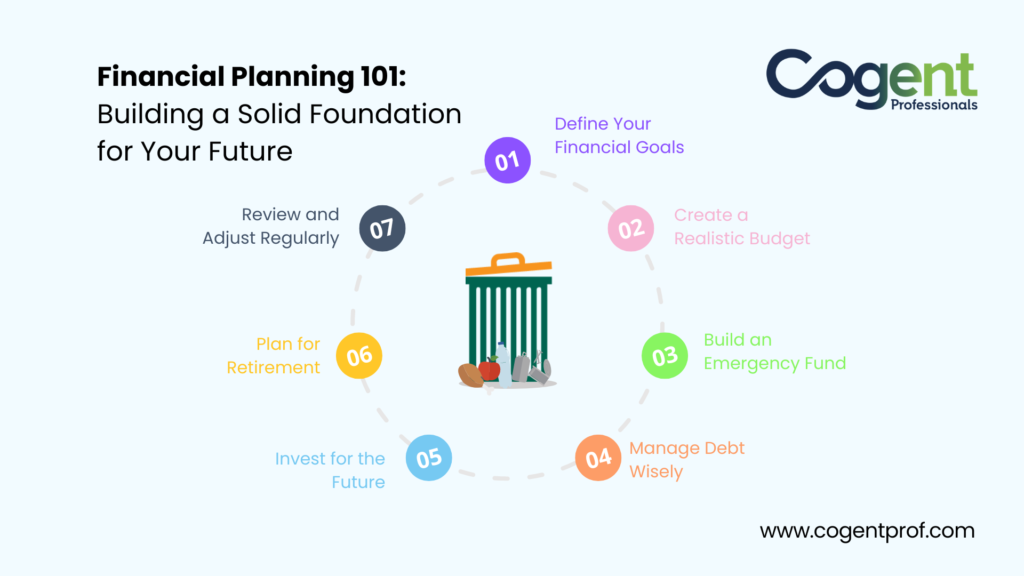
Financial Planning 101: Building a Solid Foundation for Your Future” – Explore essential principles and best practices for effective financial planning to secure your financial future.
In today’s rapidly changing financial landscape, securing your financial future requires more than just earning a steady income. It demands strategic planning, discipline, and a comprehensive understanding of essential financial principles. Whether you’re just starting out in your career or preparing for retirement, establishing a solid foundation through effective financial planning is paramount. In this guide, we’ll delve into the fundamental principles and best practices to help you navigate the journey towards financial security.
Define Your Financial Goals:
The first step in effective financial planning is to clearly define your short-term and long-term financial goals. Whether it’s buying a home, saving for your children’s education, or retiring comfortably, having specific, measurable goals will help guide your financial decisions.
Create a Realistic Budget:
A budget is a crucial tool for managing your finances effectively. Start by tracking your income and expenses to understand your spending habits. Then, create a budget that allocates funds for essential expenses, savings, and discretionary spending. Be sure to review and adjust your budget regularly to stay on track.
Build an Emergency Fund:
Life is full of unexpected surprises, and having an emergency fund can provide a financial safety net during challenging times. Aim to save at least three to six months’ worth of living expenses in an easily accessible account. This fund will help cover unexpected expenses like medical bills or car repairs without derailing your long-term financial goals.
Manage Debt Wisely:
While some level of debt is unavoidable for most people, it’s essential to manage it wisely. Focus on paying off high-interest debt first, such as credit card balances, while making minimum payments on other debts. Avoid taking on new debt whenever possible, and consider consolidating or refinancing existing debt to lower interest rates.
Invest for the Future:
Investing is a critical component of building long-term wealth and achieving financial independence. Consider your risk tolerance, investment goals, and time horizon when creating an investment strategy. Diversify your portfolio across different asset classes to minimize risk, and regularly review and rebalance your investments as needed.
Plan for Retirement:
Retirement may seem far off, but it’s essential to start planning for it as early as possible. Estimate your retirement expenses, including healthcare costs and lifestyle preferences, and calculate how much you need to save to maintain your desired standard of living. Take advantage of employer-sponsored retirement plans like 401(k)s or IRAs, and consider working with a financial advisor to create a personalized retirement plan.
Review and Adjust Regularly:
Financial planning is not a one-time event but an ongoing process. Review your financial goals, budget, and investment strategy regularly to ensure they align with your current circumstances and future aspirations. Make adjustments as needed to stay on track towards achieving your financial goals.
Effective financial planning is essential for building a solid foundation for your future financial security. By defining your goals, creating a realistic budget, building an emergency fund, managing debt wisely, investing for the future, planning for retirement, and regularly reviewing and adjusting your financial plan, you can take control of your finances and achieve your long-term financial objectives. Remember, the key to success is consistency, discipline, and a willingness to adapt to changing circumstances.
Start building your financial foundation today for a brighter tomorrow.
Visit us: www.cogentprof.com
Email: [email protected] | +91 86961 99999



